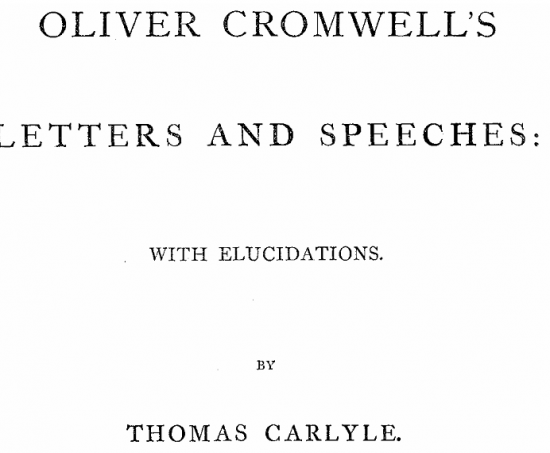Cromwell's Law
As of the 23rd May 2022 this website is archived and will receive no further updates.
understandinguncertainty.org was produced by the Winton programme for the public understanding of risk based in the Statistical Laboratory in the University of Cambridge. The aim was to help improve the way that uncertainty and risk are discussed in society, and show how probability and statistics can be both useful and entertaining.
Many of the animations were produced using Flash and will no longer work.
Cromwell's Rule refers to a principle that you should not give probabilities of 1 to any event that is not demonstrable by logic to be true, and never to give probability 0 to any event unless it can be logically shown to be false - see page 91 of Understanding Uncertainty by Dennis Lindley. It comes from Cromwell's appeal to the Church of Scotland to 'think it possible you may be mistaken'.
Some background for this can be found in Thomas Carlyle's treatise on Cromwell published in 1845, when it was an immediate success.

Carlyle prints a letter from Cromwell to the Kirk of Scotland in 1650, when Cromwell is camped outside Edinburgh and trying to persuade the Kirk to withdraw their support for the return Charles II after the execution of his father Charles 1 the year before.

Cromwell asks them to consider they may be mistaken for assuming that their actions are driven by the Word of God.

Carlyle, a Scot himself, also makes some comments about the cleanliness of the Scots.

